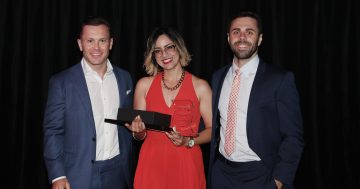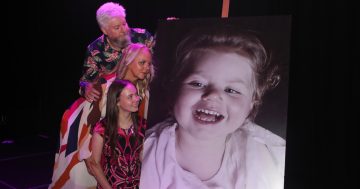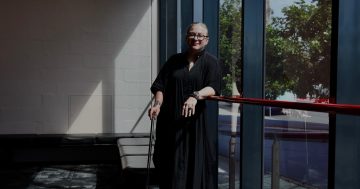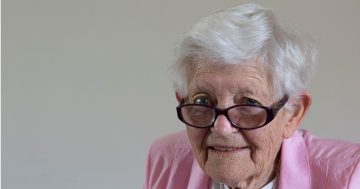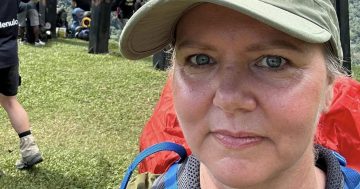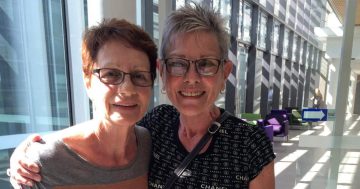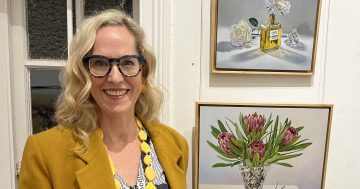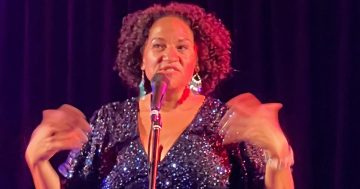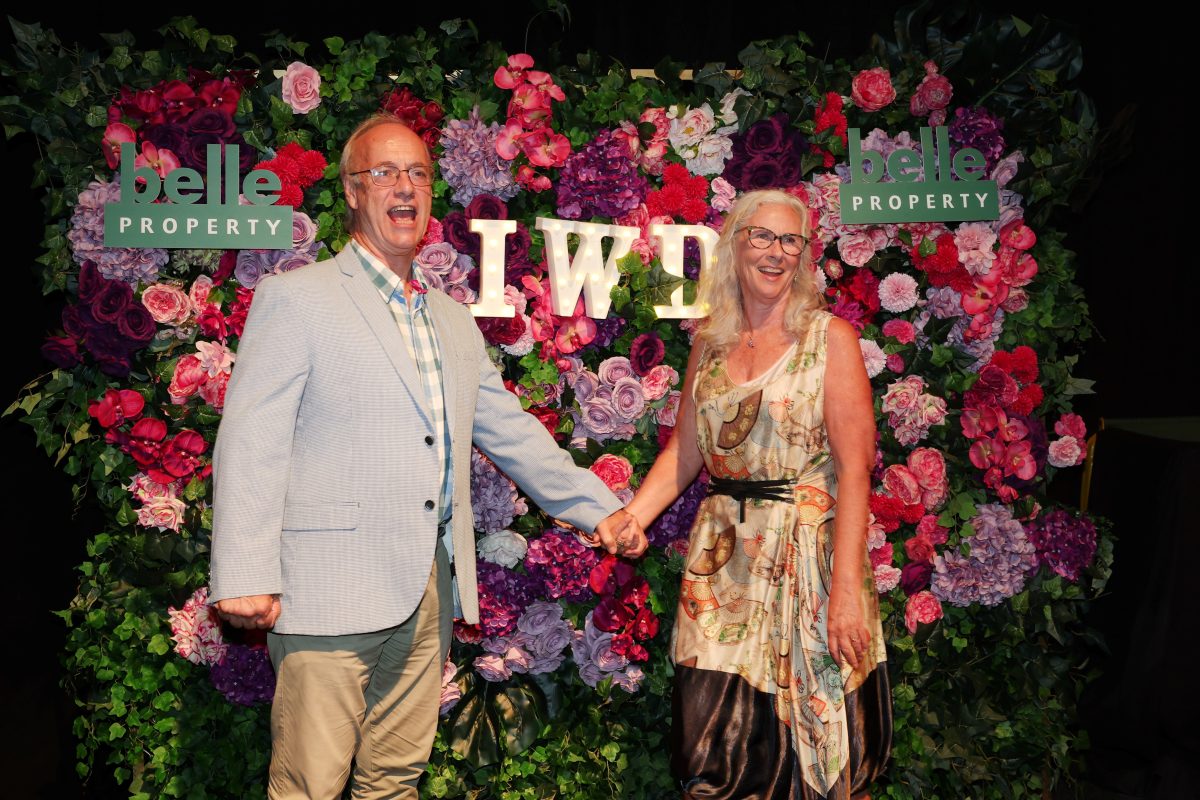
Scholarship winner Susan Kennedy with her husband Stephen Goldrick at the Illawarra International Women’s Day luncheon. Photo: IWD Illawarra committee.
Winning smiles from people living with dementia is Susan Kennedy’s passion, and this year her dedication to spreading joy was recognised with the Illawarra International Women’s Day Beryl Lewis scholarship for older women.
“To have somebody saying what I do has value and that it matters to people, that’s really affirming,” Susan said.
“I love that people are so supportive of the work. It’s easy to overlook and forget about our elderly people, especially when they begin to lose sight of who they are.”
Susan provides creative engagement to people living with dementia as a laughter valet.
A trained actor, writer and director, Susan saw the power of the arts in action when her father succumbed to early onset dementia at the age of 57.
The effect of music or any creative intervention on his mood once he was in care was remarkable, and Susan began to investigate how her skills could be harnessed to help others in a similar situation.
“A friend of mine sent me an article about clowning in a dementia ward in Scandinavia,” Susan said.
“Another friend, Maurie Voisey-Barlin, is fully trained as a laughter valet and provides creative engagement in Newcastle, and he very kindly agreed to mentor me.”
Susan approached Warrigal Care about developing a program and began as a volunteer at Mt Terry Aged Care.
A cultural grant from Wollongong City Council helped to expand the program to Coniston and then a trial at Albion Park last year.
Susan explained how laughter valets worked.
“It’s very intuitive,” she said.
“We steer away from calling ourselves clowns because we’re more larger-than-life characters who dress a little unusually – it’s obvious we’re not from the same world as the other people in the home.
“People living with dementia will often isolate themselves, so I’ll be guided by who is in danger of self-isolating and approach them.
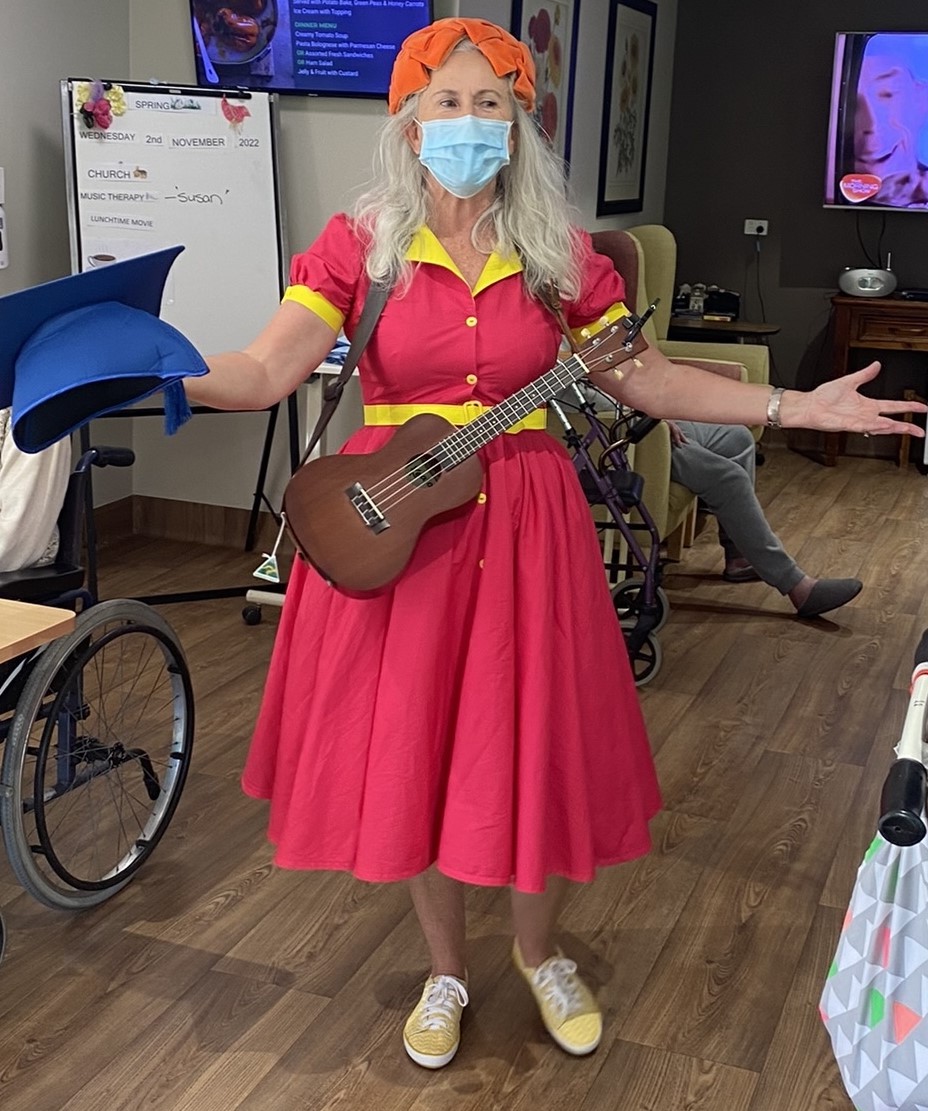
Susan Kennedy in character as a laughter valet. Photo: Susan Kennedy.
“There’s something about being dressed up that makes people drop their guard and smile, and then I gauge what they might be interested in doing.
“It might be doing some drawing, singing some songs, or just having a chat, but generally we both end up laughing a lot.”
She said a key part of the service was giving people the choice of how they would like to engage with her character.
“We give people permission to play and find out what they’re interested in,” she said.
“Having that choice helps reinforce their sense of self. Sometimes as dementia progresses people can become non-verbal and others seem to believe there’s no need to engage with them as individuals.
“Everybody needs to be engaged – you wouldn’t put a baby in a corner and ignore them because they can’t talk, but we fall into doing that to people with dementia.”
She said the hardest part of her work was the sudden loss, and she praised the dedication of aged care workers who experienced that loss daily.
Susan is also on her own quest to age positively.
She believes learning new things as you grow older is key to living an affirming, interesting life.
Another arrow she’s added to her quiver is aerial silks – a sport she took up at 57.
“I love growing older, there is so much to be said for wisdom and having the opportunity to slow down,” she said.
“I think you have to change your focus and celebrate the things you can do.
“I’m not a dancer, but I’ve been doing some dance work in the past few years, and I think it helps people to see themselves represented.
“Things like aerials weren’t available when I was younger; it makes you feel amazing, it’s a fantastic workout and artistic outlet, and it enhances your quality of life.”
Susan is currently developing an hour-long performance piece exploring the experience of a woman living in aged care.









